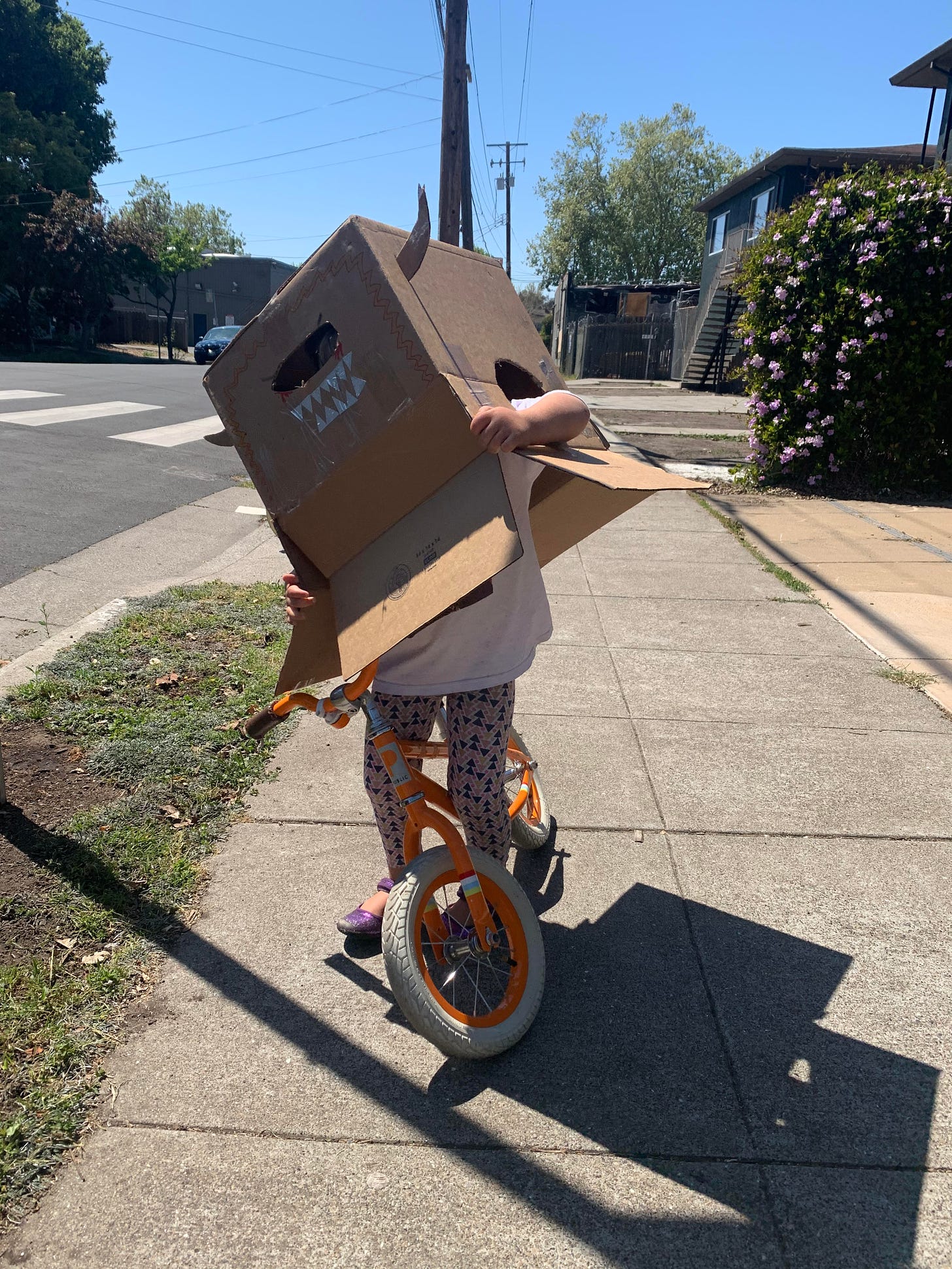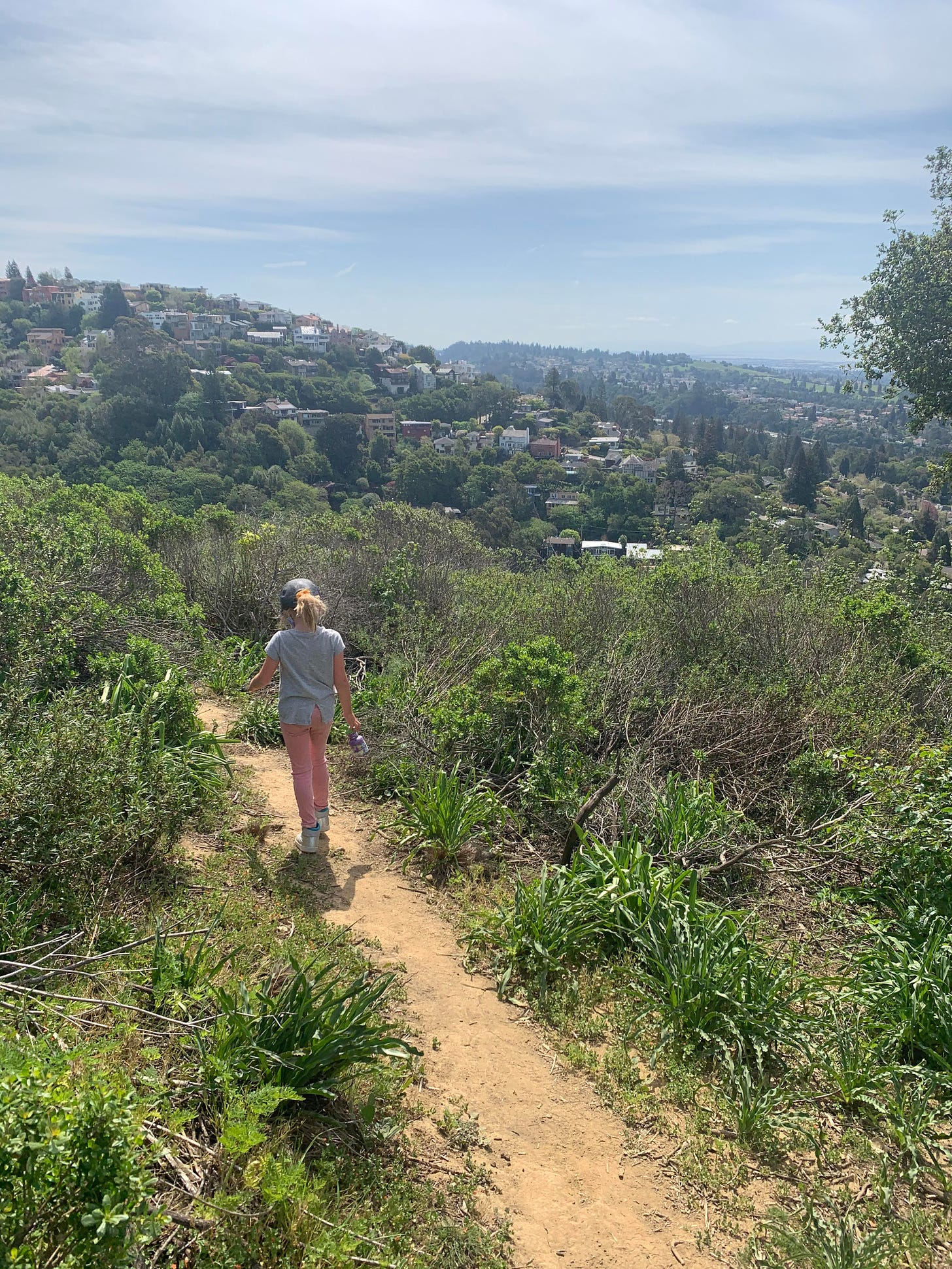In my Sunday Times round-up, I included a snapshot of a business section piece about a new product designed to make attending to the moral life of your family easier and more efficient: a subscription service called Alltruists. For $49.50 a month: a box arrives at your door, designed around a theme in the world, and guides you and your kids through readings, activities, and volunteering opportunities with “best-in-class” nonprofits (according to the website).
Many of you texted, emailed, and commented about my BIG FEELS about this box (not to mention yours) and the questions it raises, so I thought I’d explore it more…
I believe that shaping the moral life of your family should not be easy. It should not be efficient. It should not be generic. It should not be prescribed.
The creators and investors in this box got one thing right: there is a huge market of people who want to be more involved in righting the wrongs of our deeply broken society, but don’t know where to start. Their remedy, however, is repugnant to me.
I fear that it makes these people feel as if paying for this box and doing the activities it encourages each month somehow supplants self-examination and moral grappling and ethical action-taking. As if, by doing the box on poverty, you can cross that concern off your list. You are both someone who fights poverty and someone who teaches your kids about fighting poverty—an identity supposedly earned in just one afternoon curated by a VC-backed start-up.
The box is described as instilling a culture of volunteering in one’s family. Let me be clear: volunteering is not bad. It’s just limited. Here’s what it does: it allows you to be of service in some small, experiential way that likely makes someone with less money or power have an easier day. Maybe they eat more, or have a chance to access some basic necessity. Maybe you exchange a sweet smile or have a brief, warm conversation. And chances are, you and your kids are given a giant reality check. Here you have been, losing your shit over how cluttered your kid’s room feels, or worrying you are a terrible parent because you give them too much screen time, and suddenly you are reminded that there are kids, who live in your same city, whose possessions travel in a garbage bag from location to location, kids who have no device to become addicted to or clutter to not clean up.
Here’s what volunteering does not do: subvert “the hierarchy of human value,” as Aristotle A. Kallis calls it. In fact, it reinforces it. Your kid leaves these kinds of experiences feeling grateful, perhaps, but without some serious contextualization, also feeling superior; they are just passing through this land of not enough food or housing. They are the benevolent do-gooders, complimented for giving up an afternoon of Minecraft in order to “help.” In this way, modern volunteering—the corporation that picks up trash for an afternoon or the family that serves soup at the homeless shelter once a year—is not so much radical as it is deeply conservative. You take a tour through other people’s problems in order to be reminded of your own good fortune and earn your altruistic identity.
This is not to say that there is never a time for volunteering. It is to say:
the moral life of a family should be understood as an ecosystem.
I can imagine that many of the prospective subscribers of this box are people working such long hours trying to keep up with the winners-take-all grind, that they feel genuinely stressed at the idea of also having to ensure their kids are aware of and sympathetic towards the losers. Rather than seeing their kids’ muscles for existential questioning and action-taking as an inborn resource to be nurtured through the existing imperfect life of the family, their kids’ compassion becomes a deliverable.
But the ecosystem is all around. There is nothing to be packaged or delivered, because it’s already here. What do your kids learn on a daily basis about vulnerability (others and their own)? Do they see you asking for an receiving help? Or do they understand your family to be a self-sufficient island that can purchase what it needs (ala this subscription service)?
If you live among friends and neighbors with a rich tradition of being honest about your times of need with one another, then a little volunteering is not going to solidify your kid’s idea that they are the benevolent elite. They will understand that some people need food, and some people need a babysitter when they go to an AA meeting, and some people need help fixing a dishwasher. Whatever. It’s just about living in a way that doesn’t perpetuate the illusion that White and/or privileged people are only the helpers, never the helped, that our culture is superior, and even perfect, while others flail inexplicably. (And yes, White and/or elite culture is a culture; it is not neutral.)
Which brings me to the next point about the ecosystem. It is rich with structural teaching moments and the most eager learners. Kids are actually great systems thinkers if you scaffold their thinking, moment by organic moment. Point out what you notice. Ask genuine questions alongside them. Search for answers. Don’t shy away from talking about power.
Once they learn that our cities were designed to keep us segregated, and Black and Brown and indigenous folks, particularly women, from owning homes (the main root of building wealth), that mental health and addiction recovery services are scarce and expensive—then they won’t experience volunteering as a fix to anything. They’ll realize that the suffering all around our cities is the downstream effect of broken systems, not broken people. Your family may find it spiritually sustaining to do some kind of volunteering, but you won’t mistake it for a systemic solve.
Of course, this kind of analysis feels sophisticated. In certain ways, it is; but mostly because the popular discourse works so damn hard to keep it suppressed. We’d rather celebrate the individual people from historically marginalized groups that “made it”—however mentally damaged by the climb—than contemplate the 99% who experienced the system exactly as it was designed and are demoralized and struggling as a result. We’d rather reward White and/or privileged kids’ for doing community service than asking disquieting questions about our adult hypocrisy.
We also have a really hard time admitting that if we are going make things more structurally equal, it’s not just about historically marginalized people having more. It’s also about White and/or privileged people having less. Less money, less influence, less convenience. How are we modeling this for our White and/or privileged kids—that life is not a race for the best best stuff or the highest ranking, but for wholeness and integrity and beauty and joy?
Let me say this again:
shaping the moral life of a family should not be easy.
It should not come in a box. It especially should not come in a box designed to make people richer. It should not give our kids the toxic impression that racial healing or economic redistribution can ever be simple or efficient.
Far be it for this agnostic, creatively maladjusted mom of two to tell you what form it should come in. I have no box, people.
I do have a hunch that we each have to shape the moral lives of our families in our own messy ways. For us, it’s a work-in-progress made of so many choices and conversations. We live in beautiful, imperfect community. We go to public school where there is never enough funding and always enough love. We are trying to learn more about the organizations and people whom directly serve the unhoused population in our city, organizing friends to give them money alongside us (what some people call a “giving circle.”) We notice how these newborn relationships lead us to be wiser about people’s immediate needs—the hygiene kits for the unhoused folks, the graduation money for the undocumented kids, the stove for the domestic violence shelter. We read local media. We dance alongside strangers in local parks. We try to walk with humility and reverence for the many generations that have lived in these places, survived this much, and continue to share inside jokes with us at the donut shop on the corner. We still feel fucked up about it all.
In this moment of flowering good intentions, we should be skeptical of anything that claims to make self-examination and just action easier. It doesn’t mean it can’t be joyful. Or beautiful. Or playful. It can be all these things, but it also must respect the limitations of volunteering and the boundlessness of the moral imagination of children, the complexity of our history and the fragility of our future, the specificity of our gifts and our local geographies. It must encourage discomfort and real human relationships, not efficiencies of scale and time.






There is without a doubt at least one paragraph that just hits me like a ton of bricks EVERYTIME :). (needs a babysitter, I am not the same me (a month ago). You are such an amazing writer. We are by no means any good at it, but we brought our kids into some of our discussions (xmas giving), and some giving to others they never even met. We found that some discussions (very global, and non specific) helped plant some seeds. I think our lesson (only our small little family) is a little knowledge helps them fashion what it means to them, but we have a baseline of what is our moral structure now (we didnt before). We also make clear volunteering is lifelong I have zero idea if its going to work. I'lll let you know in 10 years :). Please keep up the phenomenal writing. its so refreshing to read each week.
Totally agree that the $50 morals-in-a-box is not the right answer. Also totally agree that volunteering, school, faith institutions -- they all have serious limitations. Hope we'll all spend more time thinking about better ways to teach our kids to be mensches and to fight for what's right.